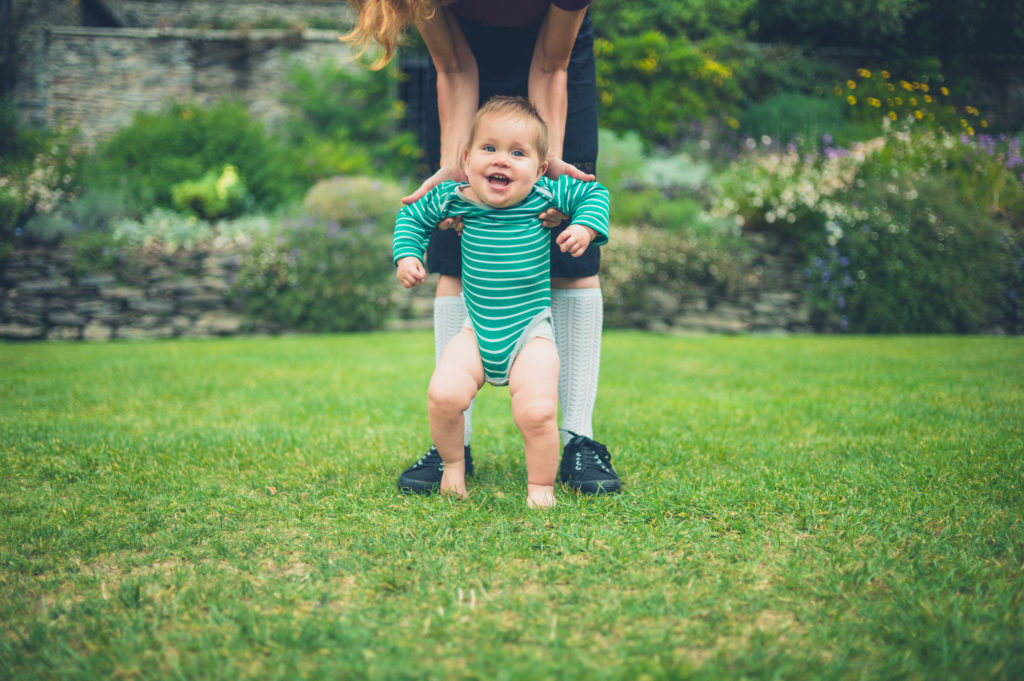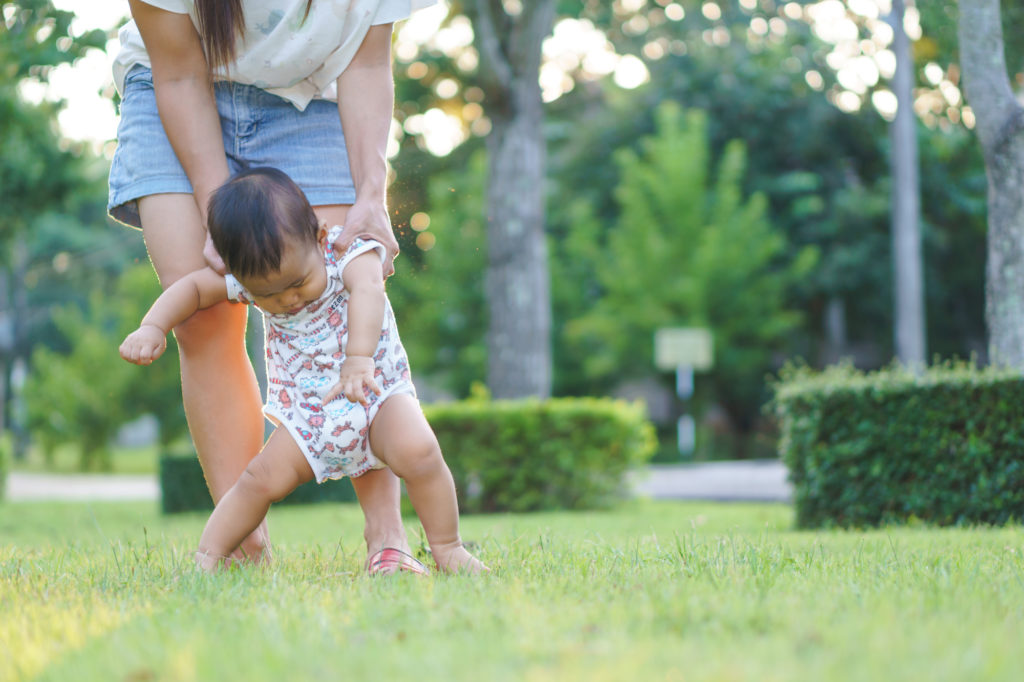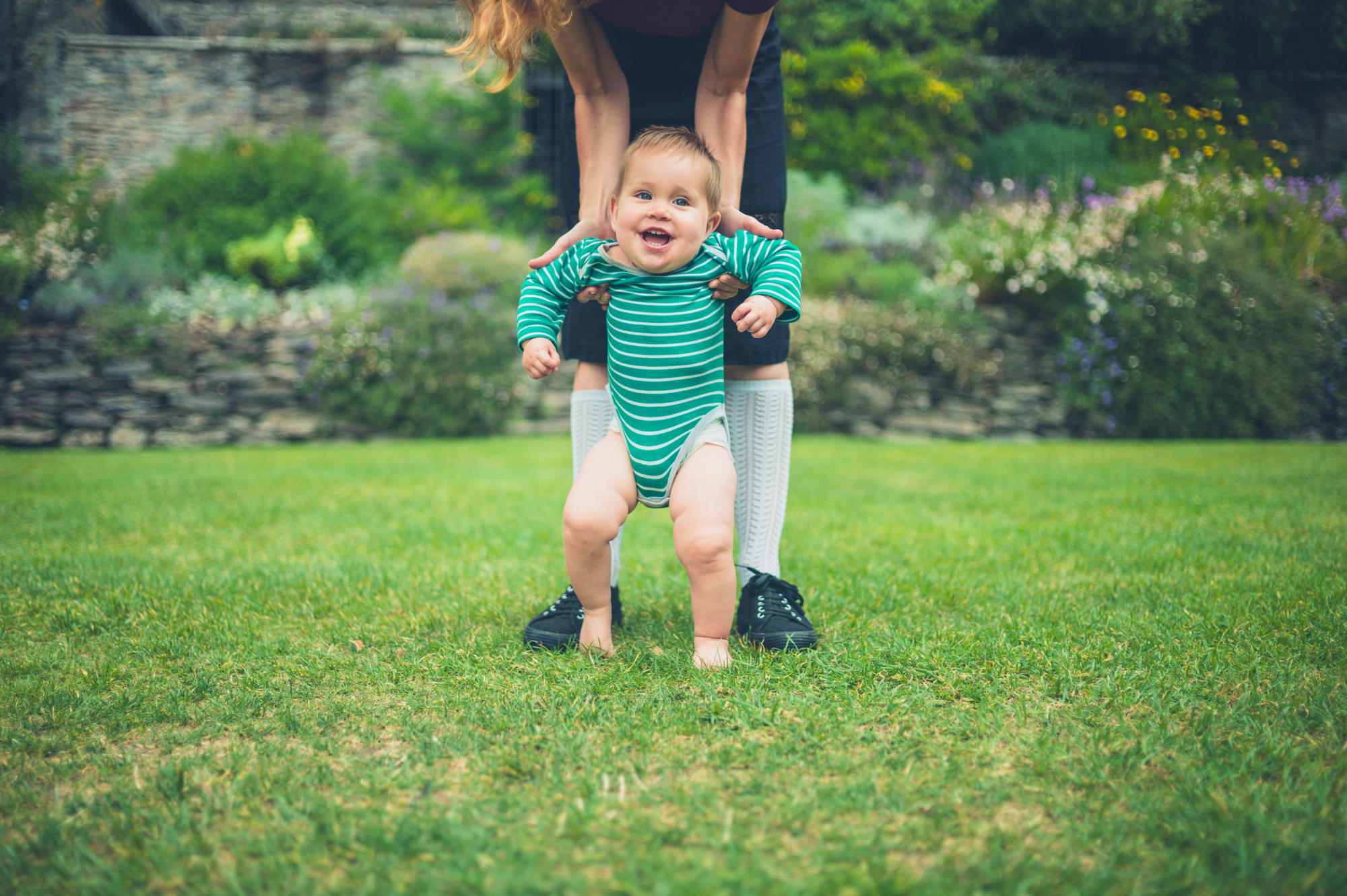¿Cuáles son las razones del retraso en la marcha de los bebés?
There are many reasons why a baby does not walk according to set developmental milestones. Generally, babies may start walking anywhere between the ages of 9-15 months, but in some instances, some babies walk earlier, and some babies walk later than this range.
Generalmente, si un bebé no camina de forma independiente a los 18 meses, es posible que se necesite una evaluación adicional para comprender por qué hay un retraso y una razón subyacente para este retraso.
Caminar es una habilidad motora gruesa que involucra los músculos grandes de las piernas. Por lo general, en términos de desarrollo infantil, estará precedido por darse la vuelta, aprender a sentarse de forma independiente, gatear, pararse de forma independiente y utilizar muebles u otros accesorios para pasear por la habitación.
A veces, la marcha tardía puede seguir a un retraso en otras áreas del desarrollo motor grueso de un bebé. Por ejemplo, gatear tarde. No es raro que los bebés se salten el gateo, por ejemplo. Aún así, caminar es una habilidad motora gruesa esencial, y la demora en alcanzarla seguramente generará preocupación tanto en los padres como en los cuidadores si un niño ha completado, incluso si con un ligero retraso, sus otros hitos principales de la motricidad gruesa. Puede que no haya una causa inmediata. por preocupación cuando se trata de un caminante tardío.
Algunas de las principales razones por las que los bebés y los niños pequeños caminan tarde son:
Hereditary: there may be a link between parents who walked later and consequent delay in their own children’s walking. Some infants walk later, and often there are no underlying causes.
Personality: some infants are in no rush to get walking, and some are more cautious with taking risks needed to master independent walking. They may be content with taking their time and learning developmental steps in their own time. While not measurable as a reason, it is an anecdotal reason for late walking in some infants.
Environment: babies who may have suffered illness or long-term hospitalization at a young age may not have had the opportunities to move and practice their gross motor skills that aid walking. Infants in environments where they are not given the opportunities to move, play on the floor, and use their developing gross motor skills may also experience a delay in walking. It is important that infants are given opportunities to move and play and are not spending extended periods of time in carriers (stroller, baby chair) that limit their ability to move.
Prematurity: babies born early may meet all of their developmental milestones slower. Usually, and depending on the extent of prematurity, babies born early should be tracked against the milestones for their due date and not the date they were born.
A rare disease or genetic syndrome: sometimes a walking delay (combined with other gross motor delays) may be a rare disease sign or symptom. Examples of these include Barth syndrome, Rett syndrome, and Russell-Silver syndrome. If a rare disease is suspected, Análisis genético may be recommended to determine the cause of gross motor delay in a child.
Underlying health or physical condition: hypotonia (low muscle tone) is a major cause of walking delay in infants. Hypotonia may also present with a rare disease, Williams’ syndrome as one example. Walking delay is also a sign of mild cerebral palsy.
En la mayoría de los casos, un retraso en la marcha, sin retrasos en otras áreas del desarrollo de un bebé, no es motivo de preocupación. Algunos bebés necesitan más estimulación y estímulo para dominar la habilidad por sí mismos.
If you have any concerns about your child’s development, including their walking skills, or indeed concerns about any of their gross motor skills, the first person to contact is your family doctor.









